Matt Campbell reshared this.
My dear, lovely, wonderful library people:
I need y'all to do about ten minutes of research on Melville Dewey and then please... stop naming library related things after him.
To say that he was an odious person is merely a starting point in a proper description of his character. Your library mascot, your library cat, the stuffed squirrel in your library... they all deserve a better name than Melville or Dewey.
End of an era: Kevin Barry, the original developer of Nova Launcher, is no longer working on the project. The plans to open source the project have also been halted.
Nova Launcher was acquired by analytics company Branch back in 2022.
reshared this
While waiting at a coworking space to meet someone I overheard this conversation:
"If leadership wants to adopt a management style of fear and aggressive oversight we should align across the board because I know some managers don't follow that. Studies show that a fearful work environment can motivate people to work faster. Our workforce will perform better if they fear losing their job"
Who...are...these...ghouls???
Who would have thought that hostile environments r better than the one where u r respected, where u r taken serious, where u could connect and maybe be part of …
Just reading would be soooo enough. There is so much research on that🤦♀️ who would have thought
🕳️

How to Setup SOCKS5 Proxy Server on Linux Using MicroSocks
Learn how to setup the SOCKS5 proxy server on Debian, Ubuntu, Linux Mint, Red Hat, Fedora, and Rocky Linux using the MicroSocks.Linux TLDR
Wow lots of people are loving that DHCP post. I wonder how many people get bit by that and can't figure out what happened?
We have DHCP leases for a reason.
LET THEM EXPIRE.
If your leases are too long and your pool is too small that's not my problem.
Many years ago I would take my little kids to an indoor playground at the mall. There was a small coffee shop right next to it where I'd get coffee. They had "free wifi" but you almost never could get on it.
One day I finally got an IP address and went to 192.168.1.1. One "admin/admin" later and I was managing the router. Typical consumer-grade WiFi router. 100 IPs, 24 hour leases. First 100 people each day got wifi. Then never again. I changed it to like 250 IPs and 10 minute leases. Prolly should have set it to at least a /20.
I told the coffee shop owner and he was very grateful. Got a free coffee out of it. 😃
testing the audience for their lived experience. Finish this bit:
How do you spell relief?
Absent nostalgia, that sounds like a good thing, but I can't help but miss it.
But also my kids would sing the various songs from recent-ish Burger King commercials, so maybe we're just not seeing it like we used to?
NAUSEA
HEARTBURN
INDIGESTION
UPSET STOMACH
DIARRHEA
YAY PEPTO BISMOL
now stand up from your desk and do the dance, it's required
Enshrined in a blog post for easy search engine indexing
blog.feld.me/posts/2025/09/sys…
RT: friedcheese.us/objects/a01deff…

Preventing Systemd DHCP RELEASE Behavior – Makefile.feld
Systemd's networkd added a terrible feature to DHCP at some point: It sends a RELEASE packet on shutdown...blog.feld.me
I don't know what to do with how much I dislike AI and its relentless creep into my industry. The more I see of it, the more inevitable it seems, and the more alienated I feel from the software engineering industry.
It could very well push me out of the industry, not because it steals my job, but because it robs me of the joy I had for this work.
My week: lists.haxx.se/pipermail/daniel…
rc3, DANE, h3 proxy, man page graphs, IRC, Dancer, photos, HackerOne, Location:, license violation, EuroBSDCon, incident handling
systemd's networking added a terrible feature to DHCP in Systemd v244 (2019-11-29):
It sends a RELEASE packet on shutdown.
So if you're restarting a server that uses DHCP and are running something like dnsmasq, it rips the DNS entry out of cache and the TTL is already super low (TTL=1) so now you can't ping the server by its hostname to watch it come online until it's actually back online. If you try too quickly, you'll end up with a negative cache entry which is even stupider.
You can fix this though:
/etc/systemd/networkd.conf
[DHCPv4]SendRelease=false
CriticalConnection=true
Now it doesn't do this batshit insane behavior
Thank you for sharing 🙂

focal - prevent networkd from performing a dhcprelease
We have an issue with focal/networkd and our dhcp-server which gives some (not all) hosts a new ipaddress when they reboot. The network guys says it is due to the dhclient sends a DHCPRELEASE so I ...Ask Ubuntu
new #chiptune for #BandcampFriday #FairTradeMusicFriday
i tried to make dub techno on the #GameBoy and it got out of hand as usual
pulu.bandcamp.com/track/precip…
reshared this
The first details on the Anthropic copyright settlement just came out:
$1.5 billion dollars. Covers 500,000 books that were pirated and used to train AI models. ($3,000 per book.)
Wednesday’s discovery of three mis-issued TLS certificates for Cloudflare’s 1.1.1.1 encrypted DNS lookup service generated intense interest and concern among Internet security practitioners. Since then, new information and analysis have become available, including the issuance of nine additional certificates since February 2024. This FAQ list is designed to answer questions raised in comments to the story and to provide the latest on what’s known about the incident,
arstechnica.com/information-te…

The number of mis-issued 1.1.1.1 certificates grows. Here’s the latest.
Everything to know about the mishap that threatened to expose millions of users’ queries.Dan Goodin (Ars Technica)
With the PM chasing the voters to the right he is telling the voters to the left to fuck off. Expect him to lose the fuck out of it. Because the voters to the right will never vote for his party.
He doesn't have a majority in Parliament. Now that Pierre Poutine has his job back...
The first says, “I’ll have a beer.”
The second says, “I’ll have half a beer.”
The third says, “I’ll have a quarter of a beer."
The fourth says, "I'll have..."
The bartender interrupts them and says, “You really ought to know your limits," then pours them two beers.
AI has justifiably been under scrutiny of late, with concerning reports of insufficient guardrails for children, young adults, and others who are vulnerable resulting in tragic outcomes. The AI companies, and society at large, must confront those issues.
However, blind people are benefiting from this technology. Like everyone else, we sometimes encounter hallucinations. That can be challenging when we are asking AI to describe the visual world, because unless we have ready access to a sighted person, we cannot always verify independently the veracity of the descriptions we’re getting.
For critical tasks, some of us ask more than one AI model for the information we’re seeking, to compare any discrepancies. We may also cross-examine the AI to be sure it’s sure. Aira’s Access AI service offers free human verification from a trained visual interpreter, which can be very useful.
With all those caveats, AI is making a difference to me, as a blind person living a full and busy life. One of my favorite AI features is deep research. Blind people, like everyone else, benefit from the convenience of information from numerous sources being distilled into one place, but there are accessibility benefits too. The AI models can gather information from sources where websites containing information may have accessibility problems.
I thought I would share my most recent use of deep research as an example of how it can combine convenience with the gathering of information that a blind person might want.
Bonnie and I are house hunting at the moment. While I have purchased seven homes in New Zealand, buying a home in the United States is different in some respects. I am reminded of just how far we’ve come in terms of accessibility. When I bought my first home, everything from perusing the property listings, to making an offer, to signing mortgage agreements, was all done on paper, therefore requiring sighted assistance. It is a better world now, provided the people a blind person work with choose accessible tools.
From our own custom portal provided by our realtor, we have been able to browse many homes. There are excellent text descriptions in most cases, which tell us enough to know when we should engage a trusted family member to give us a more detailed visual description based on photos. Sure, we could use AI to describe those photos, but choosing a home is a big life decision, and a significant purchase.
Using the portal helped us produce a shortlist of properties we wanted to visit. Based on those visits, we have one that looks very promising.
Not being able to sleep for thinking about the future and what life would be like in our possible new home, I got up at 4 AM and started drafting a prompt. As regular users of AI know, the better the prompt, the more likely you are to get a quality response. This is the prompt I finished up with.
“We (Bonnie and Jonathan Mosen) are considering purchasing the residential property at (address redacted), Baltimore MD 21230 and wish to generate a comprehensive buyer's guide.
Research extensively, and please cover:
1. Breaking the lease at (apartment complex address redacted(. Review the uploaded PDF file containing our lease agreement. Detail the steps we would have to take to break the lease, and what costs we will incur given that we are now six months into that agreement.
2. The property. Using all available descriptions of the property, produce a comprehensive verbal description of its features. If possible, analyze all photos of the property to give a rich description of walking through it that is suitable for a blind person. In other words, ideally, we would like an extensive verbal tour, floor by floor, room by room, using available photos. Be as detailed and descriptive as you possibly can, including mentioning the color of fixtures, walls, carpets etc.
3. Value. Comparing the features of this property with others on the market, does it represent good value for money at the asking price of (price redacted)? What are the pros and cons of this property. We'd like to understand the good as well as the not so good.
4. Costs in NZD. At the current exchange rate, what does (price redacted) equal in New Zealand dollars? What other ongoing financial obligations would we be incurring, such as local taxes?
5. The neighborhood. Any information about community activities, the crime rate, and the general vibe of being a member of the neighborhood would be helpful.
6. Attractions. Comment on this property's walkability score, explaining what that score measures and how it is calculated. Then please provide a comprehensive guide on stores, restaurants, and other amenities within walking distance of the property.
7. Internet service. Tell me all the companies that provide Internet to this property. What is the fastest Internet we could receive, who provides it, and what does it cost?
8. Before making an offer. What, if any, checks or inspections of the property should we purchase, and where do we purchase them from?
9. Anything else we should know that should be a factor in our decision?”
My initial intension was to give this prompt to ChatGPT, which I tend to use most often. But since I subscribe to the paid versions of ChatGPT, Gemini, Claude and Perplexity, I decided to send it to all of them and compare the output.
All of them other than Claude got the provisions of our apartment’s lease agreement correct after being supplied a PDF version of the agreement. Despite me uploading it to Claude, it said it couldn’t analyze the data, so it speculated about what was common.
ChatGPT’s report was by far the most comprehensive, albeit a little repetitive at times. Each section contained very detailed information, and then a summary of that information. This seems to be a thing with GPT 5. It was the only model that referenced blindness directly in several sections of the report, noting the need to check appliances for accessibility, and even suggesting that an O&M instructor may be helpful to help us get acquainted with the area. It mentioned that the National Federation of the Blind was close by, and recommended joining the Greater Baltimore chapter. Good advice, that.
It produced a comprehensive list of stores and other facilities close by, a few of which we know are now closed.
Gemini’s report was shorter but still helpful, and got quite poetic when it was asked to provide a detailed description of the property suitable for a blind person, even though it didn’t mention blindness directly in the entire report.
While all the responses gave accurate data about the asking price and its reasonableness, Claude got the fairly basic task of converting the price into New Zealand dollars wrong. Rather than giving the accurate figure as all the other models did, Claude provided a number that would have been true had I asked about converting the price from New Zealand dollars into US dollars. This is a basic error to have made.
Perplexity’s report was brief, but it was the most accurate about telling me precisely which Internet provider had the best plan at this specific location.
ChatGPT did an incredible job in the building inspection section, going into great detail about the steps we should take given that this house has a finished basement, and it told us that apparently, Baltimore has a termite problem. Yikes!
All the models I tested left me with far more information than when I started this exercise, but ChatGPT provided me with the most comprehensive detail by some margin. I was impressed that, despite verging on the slightly patronizing about blindness at times, it did provide information about public transit and other relevant factors that was blindness specific.
Using the research features in this way has certainly provided us with relevant information to help us determine if we should take the plunge and submit an offer. It has also helped us to identify things we should pay attention to if we choose to pay a second visit.
If this house turns out not to be the one, this technique is one I’ll use again for other serious contenders.
reshared this
What is it with Linux servers where when you reboot them over SSH the SSH session just hangs
When you do it with FreeBSD your SSH session exits gracefully
A new issue of #ThisWeekInGNOME is now online!
#215 Turn On
thisweek.gnome.org/posts/2025/…
Hey 👋 Love the 2.5admins podcast!
Assuming that you all use ZFS on your laptops as well - do you buy laptops that offer multiple SSD slots (e.g., 2x NVMe or 1x NVMe + 1x SATA) so that you can set up mirrored vdevs?
Or do you run ZFS as a single-disk configuration on your laptops, e.g., because not enough suitable laptop options exist? If the latter, how do you handle the case that a corruption is detected on your single-disk ZFS?
> Tesla Offers Elon Musk an Unprecedented $1 Trillion Pay Package
ahahahahahahaha
LOOKING FOR AN INSTANCE:
For a friend who is a sex worker, i’m looking for an instance where they could post openly about their sex work (including advertising it) but also use it as a fedi home for normal posting. (well. “normal” in terms of the standard trans nonhuman fedi posting)
Any recommendations for instances that would be good spaces for that would be really appreciated!!
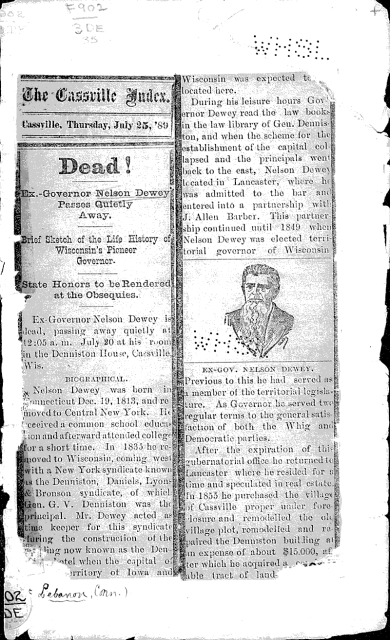
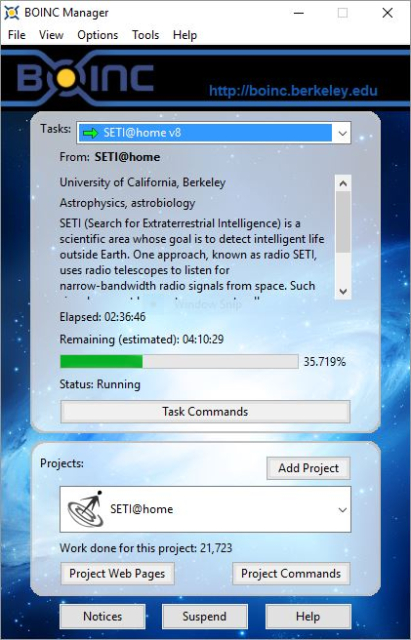
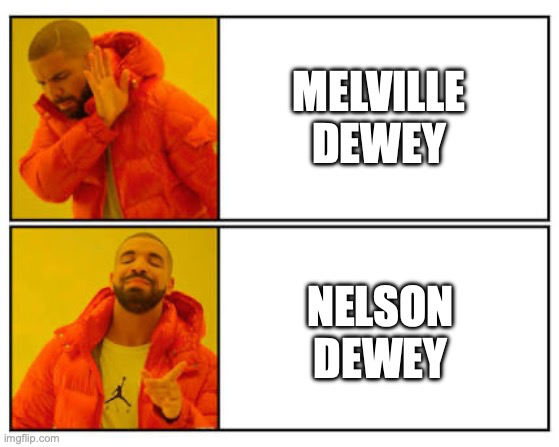



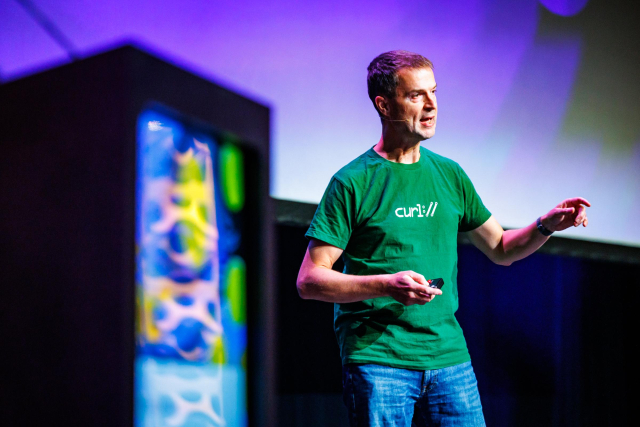


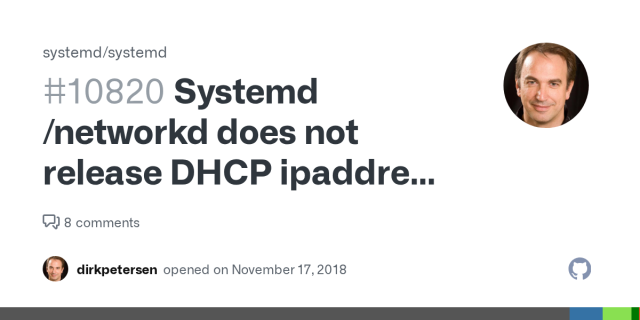



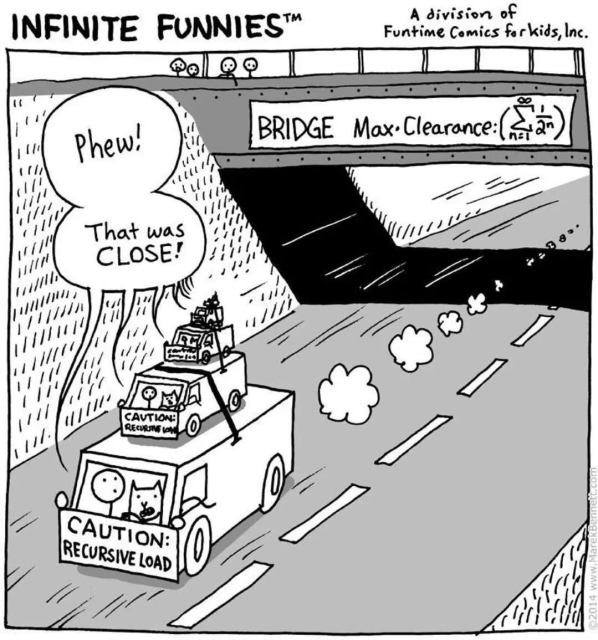
cool_boy_mew
in reply to feld • • •feld
in reply to cool_boy_mew • • •@coolboymew yes, they give out carpal tunnel surgeries like free candy here in the USA. I mean why not?
✅ Wrist/hand/arm hurts or numbness, mobility issues
✅ Patient has job or hobby that definitely causes RSI
✅ Patient is willing to try anything
✅ Insurance is gonna cover it
They just do it. They don't even make you try physical therapy to fix your arm by making you actually exercise it and improve the overall mobility.
You get the surgery, heal up, and you think it's better because you've rested your arm and hand for weeks.
And then it comes back with a vengeance because removing the sheath around the tendon (Tenosynovectomy) makes it get even more agitated.
Maybe(oz)
in reply to feld • • •@coolboymew for my own case, I’ve fixed that with 1) changing how I slept (yep 🤷♂️), and 2) physio therapy. YMMV but I’ve never thought about surgery.
Investing in more ergonomic hardware is also a cheap way to prevent these health issues.
feld
in reply to Maybe(oz) • • •@oz @coolboymew agreed.
fix your sleep, fix your posture, do some exercise, get a better ergonomic chair/desk/mouse/keyboard setup. Do the things you can do. Do some physical therapy and medical massage (not the spas, you're not going for a Swedish or something -- gotta find someone who knows what they're doing)
If none of that is helping, THEN maybe consider a surgical intervention